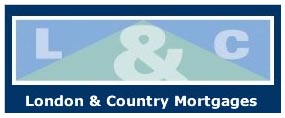Barclaycard is freezing the prices for all its UK personal customers for at least the next four months. Although committed to the principle of risk based pricing, Barclaycard has decided to suspend the process to help its customers, meaning no individual will have their purchase interest rate increased until at least June due to the change in their risk profile.
At least three million UK Barclaycard customers will benefit from the freeze in rates, with purchase ![]() interest rates being reduced by between 2.5% and 5%. Selected customers will be informed directly of the change, with half of these reductions being implemented in February and the remaining taking place throughout the year. These customers have been identified as having a low risk profile and they include both those who clear their account regularly and customers who borrow.
interest rates being reduced by between 2.5% and 5%. Selected customers will be informed directly of the change, with half of these reductions being implemented in February and the remaining taking place throughout the year. These customers have been identified as having a low risk profile and they include both those who clear their account regularly and customers who borrow.
As well as freezing rates for its existing customers, Barclaycard has reduced the headline APR for its flagship Barclaycard Platinum credit card (the most popular card in the company’s portfolio) and Barclaycard OnePulse (the combined credit, contactless and Oyster card) by 2.5% to 12.4% for new customers. In addition, Barclaycard will continue to offer a full range of cards to new customers, depending on individual circumstances and needs.
Barclaycard has also established a new helpline for customers concerned about their financial situation. Those who believe that they may get into difficulty can talk directly to an expert and receive practical support and advice by calling the helpline number available in the credit card guidance section of the Barclaycard website.
By using behavioural data shared with other credit card lenders and additional information about the total borrowings of customers, Barclaycard can now able to predict accurately when customers may be getting into difficulty, and the company is launching a programme of contacting customers who are showing potential signs of financial difficulty before they miss payments, offering support and advice to individuals as soon as possible.
Barclaycard has committed not to contact customers for up to two months to seek payment if they are actively working with the free money advice sector to sort out their financial difficulties. Continuous training of collections advisors is being undertaken to ensure that all customers in difficulty are treated with compassion, empathy and respect. Barclaycard has also committed £4.3 million over the next three years to the company’s flagship community initiative Horizons, which it launched in 2005. Working with three charity partners, including Citizens Advice, the additional money will enable Horizons to support 450,000 lone parents and their children to deal with financial hardship and build their skills for a brighter future through a programme of debt advice, financial literacy training, grants and an employability programme.
Antony Jenkins, Chief Executive of Barclaycard, said: “We recognise that 2009 is going to be a difficult year for many people and we want to do what we can, when we can, to help Barclaycard’s customers.
“Today’s announcement will assist millions of our customers and we are determined to support them further, in innovative ways, over the coming months.”
Barclaycard Platinum, APR of 12.4% with 0% BT for 12 months (3.0% BT fee applies) and 0% on purchases for 3 months.
Barclaycard OnePulse, APR of 12.4% with 0% BT for 12 months (3.0% BT fee applies) and 5% cash-back on Transport for London spend plus 0.5% on all other spends until the end of 2009.
About Barclaycard:
Barclaycard, part of Barclays Global and Retail Commercial Banking division, is a leading global payments business which understands the needs of both purchasers and sellers. It enables retailers and merchants to accept cards, helps customers make payments through card, contactless and mobile applications as well as extending credit to consumers. In addition to the UK, Barclaycard operates in the United States, Europe, Africa and the Middle and Far East.
Via EPR Network
More Financial press releases



















